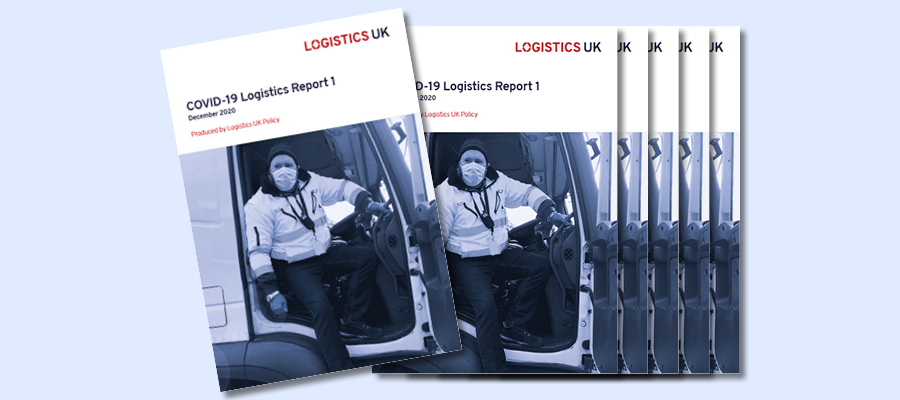🕒 Article read time: 5 minutes
New report captures COVID-19’s impact on logistics sector

Logistics UK’s policy team recently published COVID-19 Logistics Report 1, which looks at the pandemic’s impact on logistics and takes the temperature of the industry.
SEVERE ECONOMIC IMPACT
The report begins by looking at the effect of recessions on logistics, arguing that the recession of 2020 is completely different to the recession triggered by the banking crisis in 2008, as the introduction of restrictions on 23 March meant that some sectors closed down partially, while for other sectors business dried up completely.
As a low margin business sector, cash flow is key to the survival of logistics. In the 2008 recession, HGV drivers were made redundant because less business meant fewer drivers. The current recession, however, has had a different outcome in terms of redundancies.
CRISIS MANAGEMENT
Traffic statistics demonstrate that HGV traffic was down 40% in the early weeks of the pandemic. However, there is a marked difference between sub sectors of the logistics industry, with the proportion of HGVs parked up on 27 April ranging from more than 40% for construction and public authority, while food, beverage and tobacco had less than 10% of its heavy fleet parked.
BUSINESS CONFIDENCE PLUMMETS
While overall business confidence was positive before COVID-19, it has since plummeted relative to a year ago, from 51.6 in January 2020 to 33.1 in August 2020. This is unsurprising considering the economic impact of the coronavirus pandemic on logistics businesses combined with uncertainties surrounding Brexit.
Further exploration of the data found that businesses with large HGV fleets are less likely to experience poor financial health.
IMPACT ON SKILLS AND EMPLOYMENT
The total number of jobs in the logistics sector was broadly unchanged in the second quarter of 2020 compared with the second quarter of 2019. However, there were substantial decreases in job totals for both HGV and van drivers, falling by 6.8% and 8.5% respectively.
Since 2013, the skills shortage in relation to HGV drivers has shown an estimated shortfall ranging from between 40,000 to 76,000. While some of this shortfall was met by EU drivers, the number of EU HGV and van drivers fell by 36% and 34% respectively, in the year to the end of Q2 2020.
According to Logistics UK’s Logistics Performance Tracker (October 2020), since 23 March 2020, logistics companies reported that an average of 4.3% of logistics staff were made redundant.
DEMAND FOR LOGISTICS
More than five out of six of respondents to Logistics UK COVID-19 surveys reported a general business downturn, with work and orders cancelled. This reduced to three out of five by the end of May. Overall freight volumes and business orders were most affected. The level of severe and extreme disruption experienced in the supply chain during the lockdown began to ease in May and continued to fall for most indicators in September. Disruption began to rise again in October, however, affecting business orders and freight volumes.
ENVIRONMENTAL IMPACT
Traffic decreased in the 10 years to the end of 2018, according to a recent study by ATS Euromaster. Comparing data from Highways England in 2018 and 2008, the study found that congestion had reduced despite an increase of five million vehicles registered. Traffic statistics covering the pandemic period indicate a further easing. On average weekday HGV and van traffic reduced by 40% and 60% respectively, after the lockdown restrictions were implemented on 23 March, before reaching pre-March lockdown levels in October. HGV and traffic levels were 4% and 7% respectively, above pre-lockdown on 2 November. Traffic has also recently tended to be higher at the weekends.
CURRENT OUTLOOK
The lockdown response to COVID-19 brought a sudden, deep shock to Britain’s economy and society, the impact of which will be felt for a very long time. Logistics has been recognised as enabling all economic activity, as well as social activity and health services. It has been critical to the functioning of the UK during the crisis and will be essential to its recovery from it. But like all other industry sectors, the logistics industry will find it has been profoundly changed by the pandemic.
*www.logistics.org.uk
Published On: 10/12/2020 16:00:10

Comments Section
If you are a Logistics UK member login to add comments.